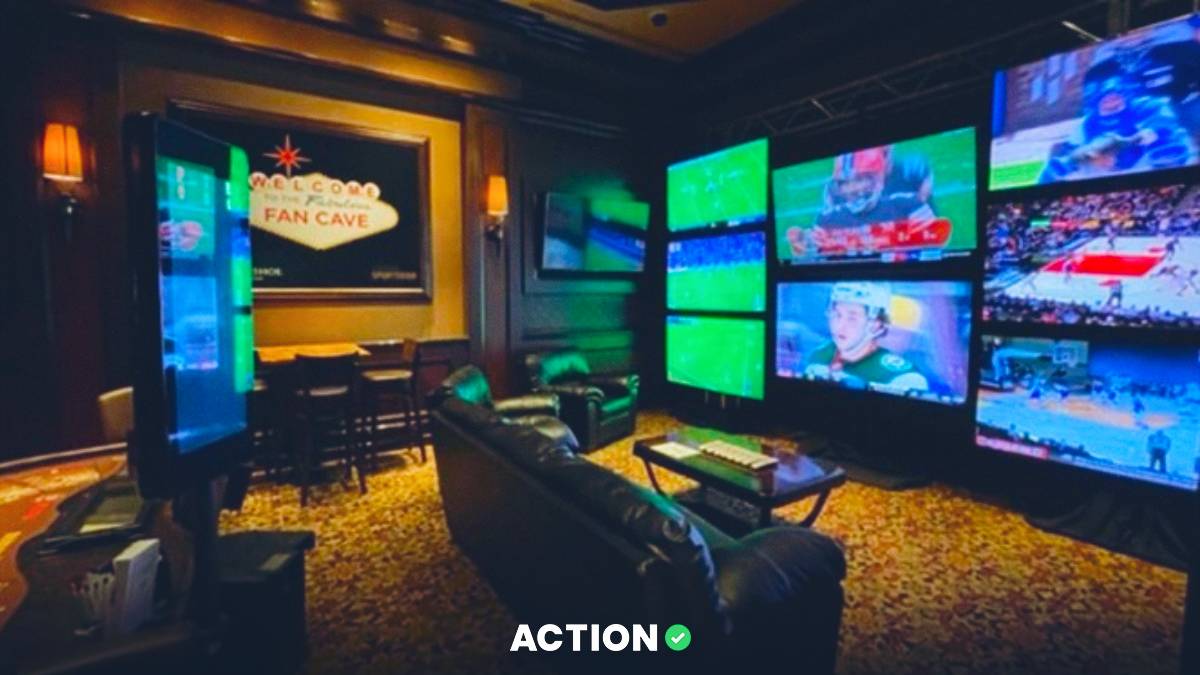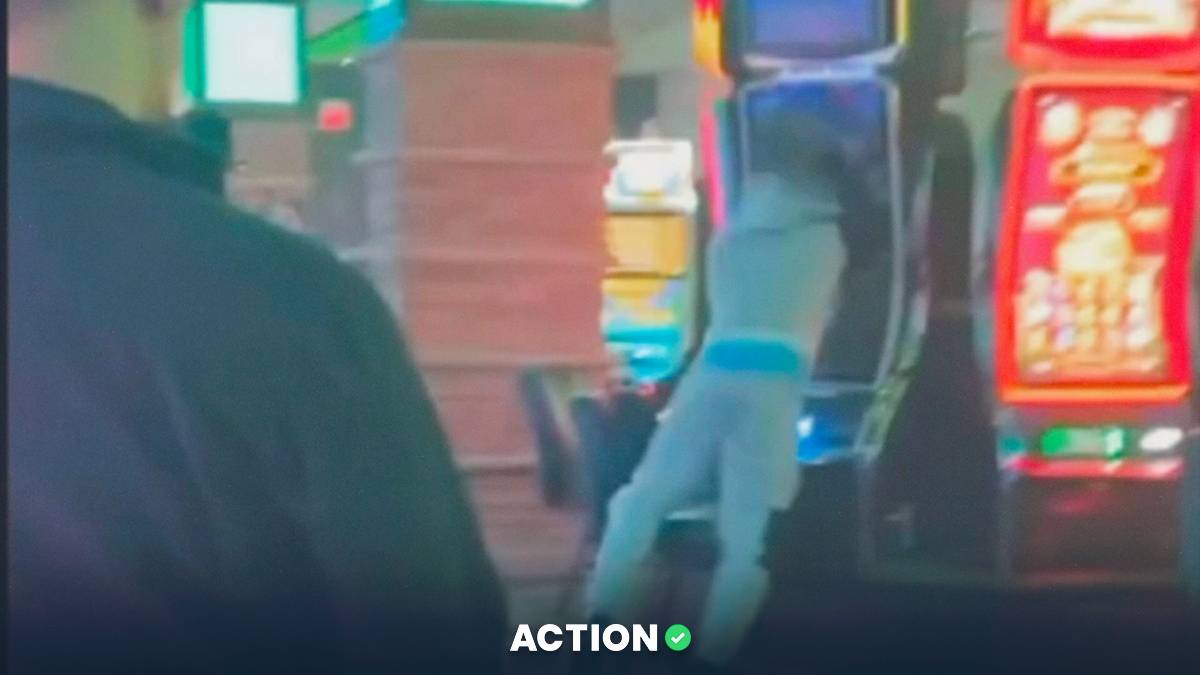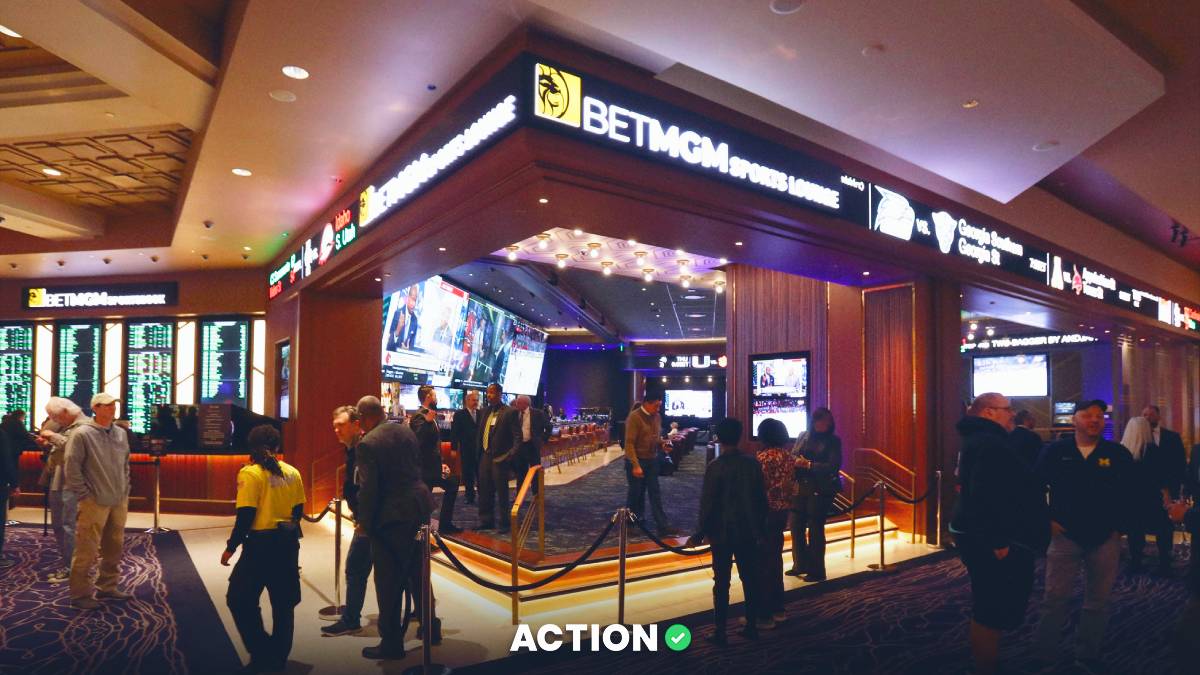Sometimes the winner doesn't take it all.
Thomas McPeek, a 24-year-old from Chicago, is in a legal dispute with Caesars Entertainment. He's trying to get $800,000 he says he won from sports betting.
CBS News Chicago reports that McPeek, who lives with his parents, chose sports betting as a quick way to make money. He placed winning bets on football at two casinos owned by Caesars but says the company won't pay him the money he won.
To improve his chances, McPeek read extensively about sports betting. Last year, he placed several bets focusing on building parlays, which require correctly predicting the outcome of multiple games to win.

He looks for bets that seem to have good odds and keeps track of his research in a notebook. He and others in the betting world believe they can increase their chances of winning, although it's never guaranteed.
In August, he went to a casino in Hammond, Indiana, with $30,000 and managed to win $350,000 in just a week. In September, he tried his luck at another casino in Bettendorf, Iowa, which is also owned by Caesars, and won more than $120,000 from a casino in Michigan City, Indiana.
Overall, McPeek claims he won $800,000, but Caesars refuses to pay, claiming he broke their rules.
The Conflict With Caesars
McPeek's winnings broke down like this: $350,000 from the Horseshoe Casino in Hammond, Indiana, and $450,000 from the Isle Casino in Bettendorf, Iowa. Unlike Caesars, the Blue Chip Casino in Michigan City, Indiana, paid McPeek $127,000 for his successful bets.
Caesars, however, offered only to refund the $50,000 McPeek spent to place his winning bets, asserting that his methods breached their terms of service.
According to Caesars, McPeek's strategies involved two key policy violations: cross-state coordination and structuring.
- Cross-State Coordination: While placing bets across state lines isn’t illegal, coordinating them in such a manner can contravene casino policies and be perceived as an attempt to game the system.
- Structuring: McPeek allegedly split larger wagers into numerous smaller bets, a practice known as structuring. This approach, often linked with money laundering concerns, is prohibited by casino regulations. It's intended to avoid drawing attention, yet McPeek's usage of this tactic attracted scrutiny.


McPeek admits to using disguises to avoid detection but insists he acted within the rules.
Betting Expert Sides With McPeek
Eli Feustel, who has written multiple books on betting, is on Team McPeek. He says the problem for Caesars is that they waited to see if McPeek had winners before telling him he broke the rules.
"If Caesars had decided before the first game was played to void all the wagers, that would be fair. That would be saying, 'You've broken the rules,'" Feustel told CBS News Chicago, "and when they saw that they didn't win — when they waited to see if they'd win before they voided him — that's where their problem is. The clear answer is Caesars owes this."
Feustel wrote a very insightful blog that thoroughly breaks down the entire case, explaining how Mr. McPeek placed his bets and the subsequent headaches this caused for Caesars. It further details Caesars’ approach to handling the dispute, the relevant Indiana law pertaining to the situation, the likely outcome of a trial, and how Indiana handles complaints related to gaming.
Legal Outcomes and Next Steps
The Indiana Gaming Commission has already ruled against McPeek, siding with Caesars’ decision to void his wagers at the Horseshoe Casino. McPeek's appeal in Iowa is still being reviewed. If he receives another unfavorable ruling, McPeek reportedly plans to file a civil lawsuit against Caesars for the $800,000 he claims is rightfully his.
Meanwhile, McPeek is now barred from all three casinos involved in this dispute. The ongoing case highlights the complexities and potential pitfalls of high-stakes sports betting, especially when navigating casino policies and regulations.








